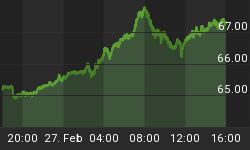With today's unexpected decline in December payrolls, the cry for more job-related stimulus will grow even louder. But the sad truth is that any new stimulus or jobs bills will ultimately swell the ranks of the unemployed, thereby raising calls for an even bigger federal effort. If we are not careful, government regulations, subsidies, and spending, all designed to fight unemployment, could push the labor market into a death spiral.
Regulation acts like a tax on job creation. By subjecting employers to all sorts of extra expenses when they hire people, regulations increase the cost of employment far beyond the wages employers actually pay their workers. In fact, some regulations are specifically tied to the number of workers employed. This provides some employers with a strong incentive to stay small and not hire.
The minimum wage law, which is really just a very visible workplace regulation, actually makes it illegal for employers to hire certain individuals and destroys entire categories of jobs. For instance, faced with high labor costs, some restaurants will avoid hiring dishwashers by switching to plastic utensils and paper plates. On a larger scale, factories may decide to switch to robotic assembly lines if human labor gets too expensive.
Other types of regulations, such as those that prohibit discrimination, create incentives for employers not to hire individuals that fall within the protected class. This is the result of potential litigation costs that may result from wrongful termination lawsuits. In other words, the more expensive government makes it to fire workers, the less likely they are to hire them in the first place.
Subsidies produce the opposite effect of regulation, but sometimes the results can be just as harmful. Government subsidies divert resources towards politically favored activities, resulting in more jobs in areas such as health care and education, but fewer jobs in other sectors such as manufacturing. The net effect of this transfer is to diminish the productive capacity and efficiency of the economy, which lowers real economic growth and diminishes employment opportunities.
Although not as visible as regulations and subsidies, government spending also plays a large role in job destruction. The more money government spends, the more resources it drains from the private sector. The fiscal 2011 budget proposed by President Obama contains $3.8 trillion in federal spending. Think of government as a cancer feeding off the private sector. The larger it grows, the more jobs it kills. Unfortunately, most politicians follow the misguided advice of economist John Maynard Keynes, who advocated government spending as a means of job creation. In reality, government spending merely results in government jobs replacing more efficient private sector jobs.
Some economists point to taxes as the primary job killer, and argue that lower taxes will boost employment. While I have sympathy for this view, it misses the larger issue that the burden of government is not what it taxes but what it spends. The proposed fiscal 2011 federal budget contains "only" 2.4 trillion of taxes. The remaining 1.4 trillion of spending is borrowed (incredibly, for every dollar the government collects in taxes, it now spends almost $1.60). I would argue that a dollar borrowed kills more jobs than a dollar taxed. Therefore, cutting taxes and borrowing the shortfall kills more jobs then it creates. This is true because jobs require capital and government borrowing more directly crowds out private capital investment than taxes do.
In the end, I fully expect the government to directly provide make-work jobs to the armies of the unemployed. This will accelerate the pace of private sector job destruction and make our economy even less productive than it is today. This means that while the government may be able to provide people with jobs, the wages they pay will provide little in the way of purchasing power. In the end, we will become a nation of government employees, with plenty of work but little to show for it.
For a more in-depth analysis of our financial problems and the inherent dangers they pose for the U.S. economy and U.S. dollar, read Peter Schiff's 2008 bestseller "The Little Book of Bull Moves in Bear Markets" and his newest release "Crash Proof 2.0: How to Profit from the Economic Collapse." Click here to learn more.
More importantly, don't let the great deals pass you by. Get an inside view of Peter's playbook with his new Special Report, "Peter Schiff's Five Favorite Investment Choices for the Next Five Years." Click here to dowload the report for free. You can find more free services for global investors, and learn about the Euro Pacific advantage, at www.europac.net.















